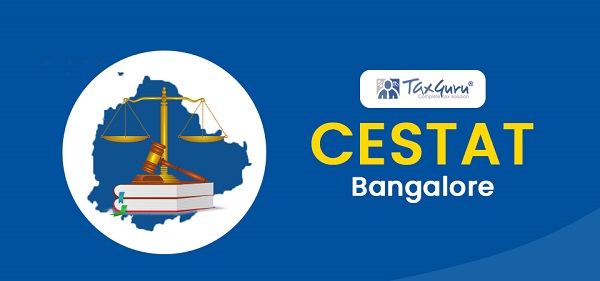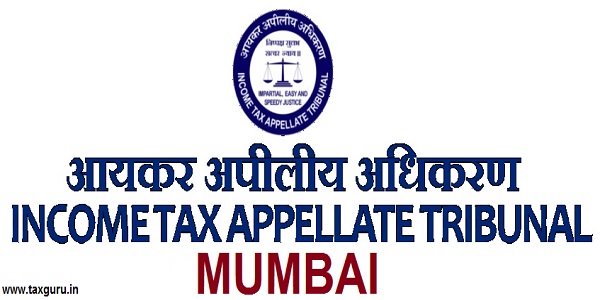This article is bifurcated into four parts and is updated for the ITR of AY 2020-21.
Part A: Person liable to file return as per section 139
Part B: Due date to file return
Part C: Brief of Rule 12 and which return to be filed
Part D: Changes in ITR forms
Page Contents
Part A: Person liable to file return as per section 139
1. Company (any)
2. Firm
3. Resident and ordinarily resident, if:-
-
- Holds, any asset o/s India
- Any financial interest in entity o/s India
- Signing authority in any account o/s India
4. If total income, before Section 10(38), 10A, 10B, 10BA, 54, 54B, 54D, 54EC, 54F, 54G, 54GA, 54GB and Chapter VIA deductions, exceeds maximum amount not chargeable to tax.
5. If total income, of other person of which he is assessable, before Section 10(38), 10A, 10B, 10BA, 54, 54B, 54D, 54EC, 54F, 54G, 54GA, 54GB and Chapter VIA deductions, exceeds maximum amount not chargeable to tax.
6. Seventh proviso to section 139(1):
-
- Deposited > 1 Crore in one or more current accounts maintained with a banking company or a co-operative bank or
- > 2 Lakhs expended for himself or other person for travel to a foreign country or
- > 1 lakhs incurred as expenditure towards consumption of electricity.
7. If gross receipts of charitable trust and institutions exceeds limit before exemption under section 11 and 12.
8. Chief executive officer of Political party if total income before section 13A exceeds the limit.
9. Special entities, like research association, news agency, 10(23A) institutions, etc. before giving exemption under section 10.
10. University, college or other institution referred to in clause (ii) and clause (iii) of sub-section (1) of section 35
11. Business trust
12. Every investment fund referred to in section 115UB
Note: Highlighted and underlined text inserted in Finance Act 2019 for AY 2020-21.
Part B: Due date to file return
1. Upto 31st October (Previously 30th September) of AY in case of:-
-
- Company
- Person where accounts are required to be audited under this act or other law.
- Partner of firm whose accounts are required to be audited. (Previously Working partner)
2. Upto 30 Nov of AY in case where assessee is required to furnish a report in section 92E (Transfer pricing).
3. Upto 31 July of AY in other cases
Notes:
A. Highlighted and underlined text inserted/modified in Finance Act 2019 for AY 2020-21.
B. Due to COVID 19, all the above dates has been extended to 30th November for AY 2020-21.
Part C: Brief of Rule 12 and which return to be filed
| Rule | Particulars | ||||
| 12(1) | Relevant Assessment year is given. Now, AY 2020-21 | ||||
| 12(1)(a) | It’s all about ITR 1 | ||||
| 12(1)(b) | Omitted | ||||
| 12(1)(ba) | Omitted | ||||
| 12(1)(c) | It’s all about ITR 2 | ||||
| 12(1)(ca) | It’s all about ITR 4 | ||||
| 12(1)(d) | It’s all about ITR 3 | ||||
| 12(1)(e) | It’s all about ITR 5 | ||||
| 12(1)(f) | It’s all about ITR 6 | ||||
| 12(1)(g) | It’s all about ITR 7 | ||||
| 12(2) | Return of income shall not be accompanied with any document/ report/proof. | ||||
| Proviso to Rule 12(2) | These reports to be filed electronically.
Audits u/s 10(23C)(iv), 10(23C)(v), 10(23C)(vi), 10(23C)(via), 10A, 10AA, 12A(1)(b), 44AB, 44DA, 50B, 80IA, 80IB, 80IC, 80ID, 80JJAA, 80LA, 92E, 115JB, 115JC, 115VW, Notice u/s 11(2)(a). |
||||
| 12(3) | Manner of filing return | ||||
| Person | Condition | Manner for return of income | |||
| Individual and HUF | 44AB audit | Electronically with DSC | |||
| -Age of 80 years or more and
-Furnish the return in ITR1 or ITR 4 Sugam |
|
||||
| Other case |
|
||||
| Company | Electronically with DSC | ||||
| Person required to file ITR 7 | Political party | Electronically with DSC | |||
| Others |
|
||||
| Firm, LLP, Other person filing ITR 5 | 44AB Audit | Electronically with DSC | |||
| Others |
|
||||
| 12(4) | Principal Director-General of Income-tax (Systems) or Director-General of Income-tax (Systems)] shall specify the procedures, formats and standards for ITRs | ||||
| 12(5) | Furnish ITR in appropriate forms only. | ||||
–
| ITR 1 / SAHAJ – For Individual | |
| Applicability:- | Non Applicability:- |
| Resident & ordinarily resident Individual | Non resident Individual |
| Resident & not ordinarily resident Individual | |
| Income from Salary/pension | |
| Income from ONE HOUSE PROPERTY | – Income from > 1 House property |
| – B/F Loss under HP – Rule 12 | |
| – C/F Loss under HP – Rule 12 | |
| Income from other sources | – Winning from Lottery / Horse race – Rule 12 |
| – Loss in this head – Rule 12 | |
| – Deduction u/s 57 except family pension deduction | |
| – Asset/ interest in entity outside India. | |
| – Signing authority in any a/c outside India. | |
| – Income from any source outside India. | |
| – Income to be apportioned as per section 5A | |
| – Director in a company (At any time) | |
| – Held equity shares of unlisted co. (At any time) | |
| – Assessable for the income on which tax has been deducted at source in the hands of person other than assessee. | |
| – Person claiming relief/deduction u/s 90, 90A,91 | |
| – Agriculture income more than 5000 | |
| – Total income > 50 Lakh | |
| – If dividend recd from Domestic co. > 10 Lacs as per Section 115BBDA | |
| – Cash credits, unexplained income etc u/s 115BBE | |
| owns a house property in joint-ownership with two or more persons {Deleted by IT (12th Amendment Rules, 2020)} | |
| required to furnish a return of income under seventh proviso to sub-section (1) of section 139 {Deleted by IT (12th Amendment Rules, 2020)} | |
| – Income from CG / PGBP | |
–
| ITR 2- For Individual and HUF | |
| Applicability:- | Non Applicability:- |
| – Individual & HUF | – Individual on which ITR 1 is applicable |
| – Any income other than PGBP | – Income from PGBP |
–
| ITR 3 – For Individual and HUF having income under the head PGBP | |
| Applicability:- | Non Applicability:- |
| – Individual and HUF | – Individual and HUF on which ITR 1,2,4 is applicable |
| – Individual and HUF on which ITR 1,2,4 is not applicable i.e. full fledged return for Individual and HUF | |
–
| ITR 4 SUGAM – For Individual,HUF and Firm having Presumptive business | |
| Applicability:- | Non Applicability:- |
| – Individual & HUF | Resident & not ordinarily resident Individual / HUF |
| – Resident Firm | – LLP |
| – PGBP u/s 44AD, 44ADA, 44AE | – Income from speculative business and other special incomes. |
| – Income from 1 House property | – Income from > 1 House property |
| – Income from other sources | – Winning from Lottery / Horse race |
| – Income from salary / pension | |
| – Income from CG (Not in ITR form) | |
| – Bf/Cf loss under any head | |
| – Asset/ interest in entity outside India. | |
| – Signing authority in any a/c outside India. | |
| – Income from any source outside India. | |
| – Income to be apportioned as per section 5A | |
| – Director in a company (At any time) | |
| – Held equity shares of unlisted co. (At any time) | |
| – has total income > 50 Lakh | |
| – Assessable for the income on which tax has been deducted at source in the hands of person other than assessee. | |
| – Person claiming relief/deduction u/s 90, 90A,91 | |
| – Agriculture income more than 5000 | |
| – If dividend recd from Domestic co. > 10 Lacs as per Section 115BBDA | |
| – Cash credits, unexplained income etc u/s 115BBE | |
| owns a house property in joint-ownership with two or more persons {Deleted by IT (12th Amendment Rules, 2020)} | |
–
| ITR 5 – For other than Individual, HUF, Company, 139(4A to 4D) | |
| Applicability:- | Non Applicability:- |
| – Applicable in all cases other than individual, HUF, Company, Person required to file return u/s 139(4A to 4D) | |
–
| ITR 6 – For Companies other than companies required to file ITR 7 | |
| Applicability:- | Non Applicability:- |
| – For all companies other than companies required to file ITR 7 | |
–
| ITR 7 – For 139(4A to 4D) | |
| Applicability:- | Non Applicability:- |
| – Persons required to file return under section 139(4A to 4D) |
–
| ITR V – Verification form (Amended) | |
| – Used when ITR has been transmitted electronically but without electronically verified. | |
| Verified ITR V form duly signed should be sent to | POST BOX No. 1, Electronic City Post Office, Bengaluru Karnataka – 560100 |
| By ordinary post or speed post on or before the due date or within a period of 120 days of uploading of the electronic return data whichever is later. | |
| – On successful verification, the return filing acknowledgement can be downloaded from e-Filing portal as a proof of completion of process of filing the return of Income | |
Part D: Changes in ITR forms
1. (ITR 1 to 6) As time limit to invest/deposit/payments etc. for claiming deduction/exemption for the FY 2019-20 has been extended to 30/06/2020. In consequence thereof, New ‘Schedule DI’ inserted for furnishing details of amount paid/ investment made during 01/04/2020 to 30/06/2020 for claiming deduction in AY 2020-21.
Part A: Chapter VIA deductions
Part B: Deduction u/s 10AA
Part C: Exemption u/s 54 to 54GB
2. (ITR 1 to 7) Option to quote PAN or Aadhaar in many schedules. Like TDS details, Details of tenant of house property, Auditor details, details of Co-owner of house property, details of person verifying the return etc.
3. (ITR 2,3,5) Separate reporting of surcharge on income chargeable to tax under sections 112A, 111A, proviso to section 115AD(1)(b)(iii). As rate of surcharge (25% or 37%) withdrawn for Individual, HUF, AOP/BOI, AJP and maximum surcharge rate is 15%.
4. (ITR 3,5,6) Reporting of cash receipt or payment where turnover of assessee is between Rs. 1 crore to Rs. 5 crore. As turnover required for audit has been increased from Rs. 1 crore to 5 crore subject to condition that cash expenses and cash receipts does not exceeds 5%, therefore separate reporting of the same is asked for.
5.(ITR 6) Separate Reporting of dividend received from the specified foreign company:- As per section 115BBD of the Income-tax Act, dividend received by a domestic company from a foreign company, in which such domestic company has 26% or more equity shareholding, is taxable at a special rate of 15% plus Surcharge and Cess.
6. (ITR 6) Foreign company to separately report income from royalty or Fees for technical services chargeable to tax @ 50%. Changes made in Schedule OS and Schedule SI.
7. (ITR 7) Trust to furnish details of re-registration made under the new provisions. Details relating to re-registration under new provisions shall be filled only if application for registration under new provisions has been filed before filing ITR. Additional details to be filled are: Section under which the registration is applied, date on which application is made, section of exemption opted for under the new provisions.
8. (ITR 7) Corpus donation not to be considered as an application of Income. ITR Form 7 seeks ‘Donation-other than corpus’ as against the classification of donation required until last year into ‘corpus’ and ‘other than corpus’. Along with, Part C of Schedule ER has been amended to incorporate the Donation forming part of corpus fund as disallowable expenditure.
9. (ITR 3,5 and 6) Depreciation rate of 45% added in the block of plant and machinery for motor vehicles. As additional depreciation of 15% allowed on motor vehicles purchased between 23/08/2019 and 31/03/2020. New depreciation rate on motor vehicles are as under:-
| Asset | Rate of depreciation |
| i. Motor cars, other than those used in a business of running them on hire, acquired or put to use on or after the 1st day of April, 1990 except those covered under entry (ii) | 15% |
| ii. Motor cars, other than those used in a business of running them on hire, acquired on or after the 23rd day of August, 2019 but before the 1st day of April, 2020 and is put to use before the 1st day of April, 2020 | 30% |
| a) Motor buses, motor lorries and motor taxis used in a business of running them on hire other than those covered under entry (b) | 30% |
| b) Motor buses, motor lorries and motor taxis used in a business of running them on hire, acquired on or after the 23rd day of August, 2019 but before the 1st day of April, 2020 and is put to use before the 1st day of April, 2020 | 45% |
10. (ITR 3,5 and 6) Separate reporting of income chargeable to tax at rate provided in DTAA i.e. special rate (where DTAA is beneficial and benefit has been taken).
11. (ITR 2 to 7) Separate reporting of income or loss from pass through entities like REITs, InVITs etc. Now section 115UB, allow pass through of losses as well. Various schedules like CG (Capital Gain), SI (Special income) has been changed to incorporate the same.
12. (ITR 3,5 and 6) Details of tax paid on secondary adjustments (Transfer pricing) as per section 92CE(2A).
13. (ITR 1 to 6) Separate requirement/disclosures of following deductions claimed under chapter VI-A. Section 80EEA (Housing loan), 80EEB (loan taken for electric vehicles), 80LA (Banks and IFSC units) and 80PA (Producer company).
14. (ITR 6) Whether Company opting for section 115BA/115BAA/115BAB (applicable on domestic company).
15. (ITR 6) If Turnover of FY 2016-17 is up to 250 crores then rate of tax for domestic company is 25%. In finance Act, 2019 this limit has been changed from Rs. 250 crore to 400 crores and year has been changed from 2016-17 to 2017-18. Consequentially, year and limit has been changed in ITR.
16. (ITR 3,5 and 6) Interest payable to Deposit taking NBFC or systematically Important NBFC added in disallowance under section 43B. Finance Act, 2019 added above interest in section 43B i.e. expense will allow only on payment basis.
17. (ITR 5 and 6) Separate reporting, i.e. Net profit from life insurance business, additions and deductions as per section 30 to 43B, is required for income from life insurance business covered under section 115B.
18. (ITR 5 and 6) Separate reporting is required for income from units of mutual fund purchased in foreign currency by Off shore fund taxable at special rate of 10% under section 115AB in schedule OS and also added such income in schedule SI.
19. (ITR 5 and 6) Option to choose ‘Self-occupied property’: As per section 23(5), where the property consisting of any building or land appurtenant thereto is held as stock-in-trade and the property or any part of the property is not let-out during the whole or any part of the previous year, the annual value of such property or part of the property, for the period up to 2 years from the end of the financial year in which the certificate of completion of construction of the property is obtained from the competent authority, shall be taken to be nil. Now option inserted in ITR 5 and 6 to select this type of property under self-occupied property option.
B. Other changes:-
1. (ITR 1 to 4)- Clause wise selection inserted where return is filing under seventh proviso:- (a) Deposited > 1 Crore in one or more current accounts maintained with a banking company or a co-operative bank or (b) > 2 Lakhs expended for himself or other person for travel to a foreign country or (c) > 1 lakhs incurred as expenditure towards consumption of electricity.
2. (ITR 1 to 7)- If return filed in response to notice then Unique document identification number is required.
3. (ITR 1 to 4)-Detailed nature of employment to be given. Previously there were four categories i.e. Government, Public sector undertaking, Pensioners and Others. Now, 6 categories are provided i.e. Central Government, State Government, Public sector undertaking, Pensioners, Others and Not Applicable.
4. (ITR 1 to 7) Now, can select multiple bank accounts for refund. In that case, refund will be credited to the account decided by the CPC after processing the return.
5. (ITR-2,3,7) Type of company to be reported if the assessee is a director in a company. (Dropdown to be provided for type of company)
6. (ITR-2,3,7) Type of company to be reported if the assessee holds unlisted equity shares of company (Dropdown to be provided for type of company)
7. (ITR 6) SH-1 (Shareholders and price at which shares are issued) schedule not applicable in case of Section 8 company and co. limited by guarantee.
8. (ITR 7) Columns to claim exemption other than 11(1A) including exemption u/s 112A under capital gain schedule has been deleted under ITR 7.
9. (ITR 6) Details of the authorized person verifying the ITR of company to be furnished in Key persons schedule with details of Managing director, Directors, secretary and principal officer(s).
10. (ITR 5 and 6) Option to claim an exemption under Section 54EE removed as no fund has been notified yet.
11. (ITR 6) Reporting of share in co-owned land and building by company in ITR 6.
12. (ITR 6) “No Account Schedule” deleted for IndAS compliant companies as IndAS compliant companies is always required to maintain its books of accounts.
13. (ITR 3 and 6) Reporting of disallowance under section 40(ba).
Disclaimer: This article is for informational/educational purposes only, but not promised or guaranteed, to be correct, complete, and up-to-date and hereby disclaims any and all liability to any person for any loss or damage caused by errors or omissions, whether such errors or omissions result from negligence, accident or any other cause.
About Author: CA Sandeep Bansal, is a practising Chartered Accountant based out of Delhi and is an associate member of the Institute of Chartered Accountants of India since 2015. Possesses sound professional experience for approx. 5 years in the field of Income tax, GST, Auditing, Company law etc. He keens to gain expertise over different areas and ensure to keep himself updated. For any query/suggestion, feel free to contact us on:- Mob. 8802758246 and Email:- casandeepbansal2209@gmail.com





























